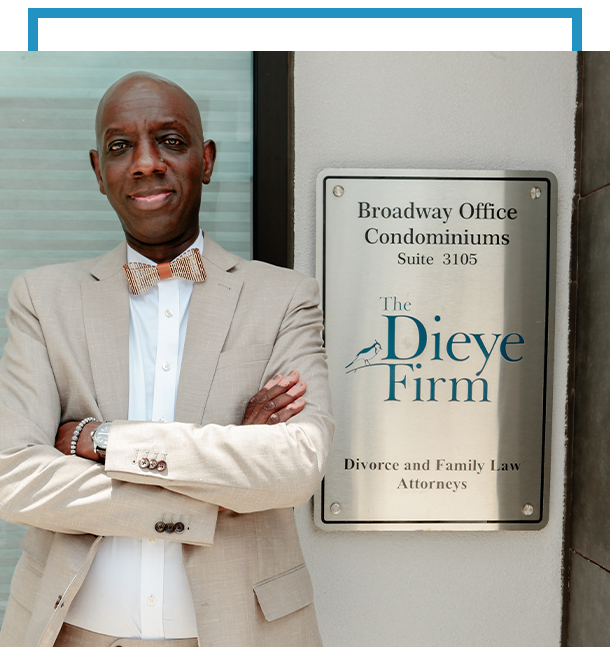Choosing a Texas Family Law Attorney
One of the smartest decisions you can make if you decide to file for divorce is hiring an attorney. How do you decide which attorney is the best one for you? There are several steps you should take before you retain a lawyer and always follow your instincts.
First, determine where you want your attorney to be. If you live near the place your divorce is being handled, then your decision is easier. However, if your divorce is far away from where you live, you will need to decide if you want a lawyer close to you or close to the courthouse. If a lawyer is close to you, then it is more convenient for meetings and dropping items or documents off. However, you will have to pay them more in travel time whenever they have a hearing or mediation to attend on your behalf. If the lawyer is closer to the courthouse and from that jurisdiction, then they are probably at an advantage. They will know how particular judges operate, what their preferences are, and the basic procedures of the local court. An ‘out-of-town’ lawyer will be less familiar, which can make a difference.
Once you decide where you want your lawyer based, try to do some research. The Internet is a great place to start, but take everything you read with a grain of salt. Reviews – good and bad – can be exaggerated by clients. Try to find a professional rating, such as Avvo or Martindale-Hubbard. See if there are any reviews from the Better Business Bureau. And finally, check the State Bar of Texas website to see if there is any disciplinary history on that lawyer. One of the best ways of finding a lawyer is through word of mouth. If any of your family or friends have gone through a divorce, ask them who their lawyer was and if they had a good experience with them.
Once you’ve found a few lawyers you like, call to see if you can make an appointment for a consultation. Many lawyers will offer a free or discounted initial consultation. You can use this opportunity to ask some basic questions about your case and get a feel for how that lawyer operates. Pay attention to everything. Is there a receptionist who answers the phone? How is their demeanor? Were you put on hold for a long time? When you come into the office, is it clean and organized? How big is it? When you meet with the lawyer, pay attention to how they behave. Have they reviewed your notes? Are they taking notes when speaking to you and asking questions? Or are they on their computer, or taking calls from other people?
Remember to use this opportunity as a job interview for them. Ask them if they’ve ever had cases similar to yours and what the outcome was. Find out who can handle your case if the attorney you retain is unavailable (such as if they have a long trial or go on vacation). Maybe they know your spouse’s attorney and have a good working relationship with them. Most consultations will be limited in time – usually half an hour. So come prepared with a list of questions and notebook to write down important points.
Try not to let cost be the sole factor in choosing an attorney. Of course, fees are important – you need to make sure you can actually afford the representation you choose. However, you often get what you pay for. Attorneys who charge you a minimal amount may not be comfortable in using all the resources at their disposal in pursuing your case. However, attorneys who charge a huge retainer might also not be worth the money. This is where listening to your instincts can pay off. If something seems too good to be true, it probably is. No matter how much your attorney charges, make sure you sign a contract and understand the terms of their services. Find out how they bill, what their hourly rate is, and how often you’ll be expected to pay. Learn as much as you can up front before retaining a lawyer. And do not forget that if your lawyer does not live up to your expectations, you can always hire another one. (Just remember, hiring a lawyer to start over in the middle of your case can be expensive and difficult!)
Family Law & Divorce
Frequently Asked Questions
-
How much is child support if it is ordered?Texas uses a specific formula to determine the amount of child support. It is based on a parent's gross income and the number of children that the parent has. The possession schedule has no bearing on child support, nor does the recipient spouse's income. That is because child support is the right of the child and not the other parent. It is important to remember that the formula is merely a guideline.
-
What is the difference between joint custody and sole custody?In Texas, joint managing conservatorship is the default position of the courts. Usually, it is in the best interest of the child to have both parents equally involved in their lives. Joint managing conservatorship means both parents will have joint rights and duties as it relates to the children although some rights may be given exclusively to one parent (education and medical for example). Sole custody means that only one parent will get the exclusive right to make most decisions for the children but the other parent will still have visitation rights. In order to get sole managing conservatorship, a party must demonstrate that it will not be in the best interest of the child to have joint custody. Usually, this involves showing the court that there has been some abuse or neglect by a parent.
-
What are the factors a court considers when determining spousal support?The overriding principle is the needs of the recipient party balanced with the ability of the other spouse's ability to pay. There is no exhaustive list for a judge to use, but they should consider the financial situation of both spouses, the contribution of each spouse to the marriage (including whether or not one party sacrificed their career to raise children), the age, employment history, education, health and earning capacity of the spouse requesting support, spousal violence, and any fault in the break-up of the marriage.

Don't settle for inexperience. Choose a firm with an unwavering dedication to clients and their best interests.

Our Practice Areas
Personalized Solutions for Each Case
Why Hire The Dieye Firm?
Dedicated to Providing Exceptional Legal Guidance

-
Respected Reputation
-
Experienced & Devoted Team
-
Compassionate, Results-Driven Representation
-
Payment Plans Offered
